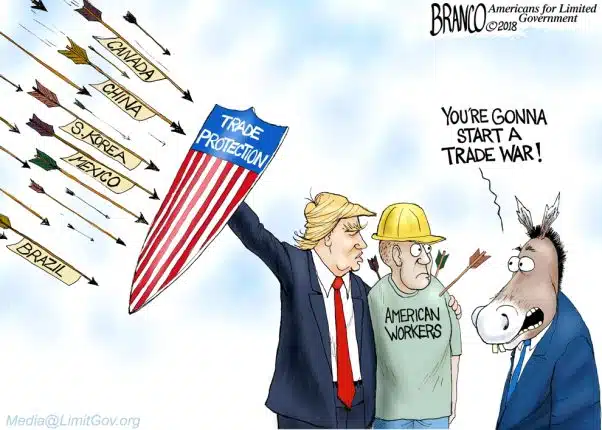“Somehow, Senate Republicans in their push to reclaim the majority in 2014 failed to inform voters of their apparent intention to raise taxes on gasoline by 12 cents, a 65 percent increase from the current 18.4 cent federal gas tax.”
That was Americans for Limited Government President Nathan Mehrens’ take on a push by the incoming Senate majority to enact the largest nominal gasoline tax hike in U.S. history, and the largest percent increase since 1983.
The statement came in response to comments from Sen. Bob Corker (R-Tenn.) appearing on Fox News Sunday on January 4, saying, “yes, we have proposed raising the gasoline tax-user fee by 12 cents.”
Sen. John Thune (R-S.D.), appearing in the same segment, told host Chris Wallace that “I don’t think we take anything off the table at this point,” including a gas tax hike.
Read their lips.
Readers will recall that it was the 5 cent gas tax hike in 1990 that proved false George H.W. Bush’s “read my lips” pledge against tax increases, and ultimately cost him his presidency in 1992.
The catastrophe cuts across both parties, lest anyone forget the 1993 4.4 cent per gallon hike that sealed Democrats’ fate, consigning them to minority status in both chambers of Congress in 1994 for the first time since 1954.
Now, Senate Republicans are lining up to be guillotined in 2016.
Those who forget history invariably are doomed to repeat its mistakes.
Despite the predictable political calamity that might ensue should Republicans vote to increase taxes they appear more concerned with making certain “there are a lot of areas where we can work together [with Obama],” to quote Sen. Thune.
At issue is a $17 billion a year shortfall in the Highway Trust Fund, which the gas tax funds. But as Janet Kavinoky, executive director of transportation and infrastructure for the U.S. Chamber of Commerce recently noted, gas tax revenues are not slowing because the rate is too low, but because fuel consumption has not recovered after the 2008 recession.
“When [people] drove less, they also bought less gas, so there were fewer fuel taxes going into the [Highway Trust Fund],” Kavinoky said. “We didn’t anticipate that, so we had to start making up the difference. People didn’t jump back into driving the way they did before, so we [have been] making up the difference ever since.”
But, said Mehrens, the solution is not to raise taxes, but to “find ways to boost economic growth and cut spending, not to kill already slack demand,” noting an analysis that lower gas prices might be beneficial for the economy going forward.
“Lower gas prices were expected to contribute $1 billion to consumer pocket books for every penny the price drops, providing a private sector energy stimulus that might finally boost demand,” Mehrens said, concluding, “It is shocking that the so-called party of low taxes’ first response to the good news of lower gas prices is to raise taxes on gas, regardless of any assertions that the proposal might be revenue neutral.”
Robert Romano is the senior editor of Americans for Limited Government.







